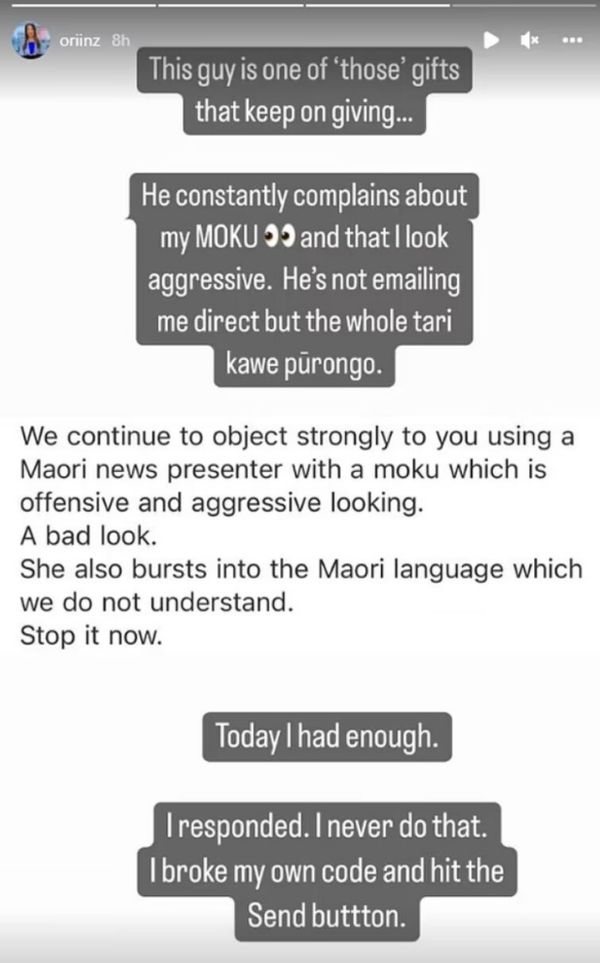Embracing Cultural Heritage and Identity
Television presenter Oriini Kaipara, an influential figure in her field, recently made history in New Zealand. She became the first primetime TV news bulletin presenter to proudly wear a moko kauae, a traditional Māori facial tattoo. Māori people, the indigenous Polynesian population of mainland New Zealand, see these tattoos as powerful symbols of heritage and identity. Passed down through generations, they represent a woman’s connections to her family, her leadership in the community, and her lineage, status, and abilities.

However, not everyone sees it the same way. Some individuals argue that tattoos should be limited to the body. This sparked a debate online, with some questioning the cultural significance of facial tattoos. One viewer, known as David, took it upon himself to express his displeasure in an email to Newshub, where Kaipara works. He called her tattoo offensive and aggressive and demanded that she stop using Māori language in her broadcasts.
Facing Adversity with Grace
Despite the hurtful comments, Kaipara responded to David’s email with poise and dignity. She shared screenshots of his messages on her Instagram story, allowing her followers to witness her response. In one of her posts, she wrote, “Today I had enough. I responded. I never do that. I broke my own code and hit the send button.”

In her thoughtful reply to David, Kaipara pointed out that there was no violation of broadcast standards and that she took his complaints lightly. She also politely corrected his spelling of moko, emphasizing the importance of getting cultural terms right. Kaipara expressed that Māori people and their moko are not threatening or deserving of discrimination, harassment, or prejudice. She urged David to refrain from further complaints, while also encouraging him to educate himself and let go of cultural ignorance and bias.
Celebrating Cultural Pride
Kaipara emphasized that she mostly receives comments of praise and support. Harsh critics like David are the exception rather than the rule. In an interview with the New Zealand Herald, Kaipara highlighted the need for more Māori advocates in influential roles. She acknowledged that her very existence challenges some individuals and serves as a reminder of why representation matters.

This incident serves as a powerful reminder of the importance of cultural pride and resilience in the face of adversity. Kaipara’s response inspires others to embrace their identities unapologetically and confront discriminatory attitudes head-on. It is a testament to the ongoing struggle for acceptance and understanding, as well as the strength and determination of Māori people to celebrate their heritage.
Don’t forget to let us know your thoughts on this inspiring story in the comments below!





